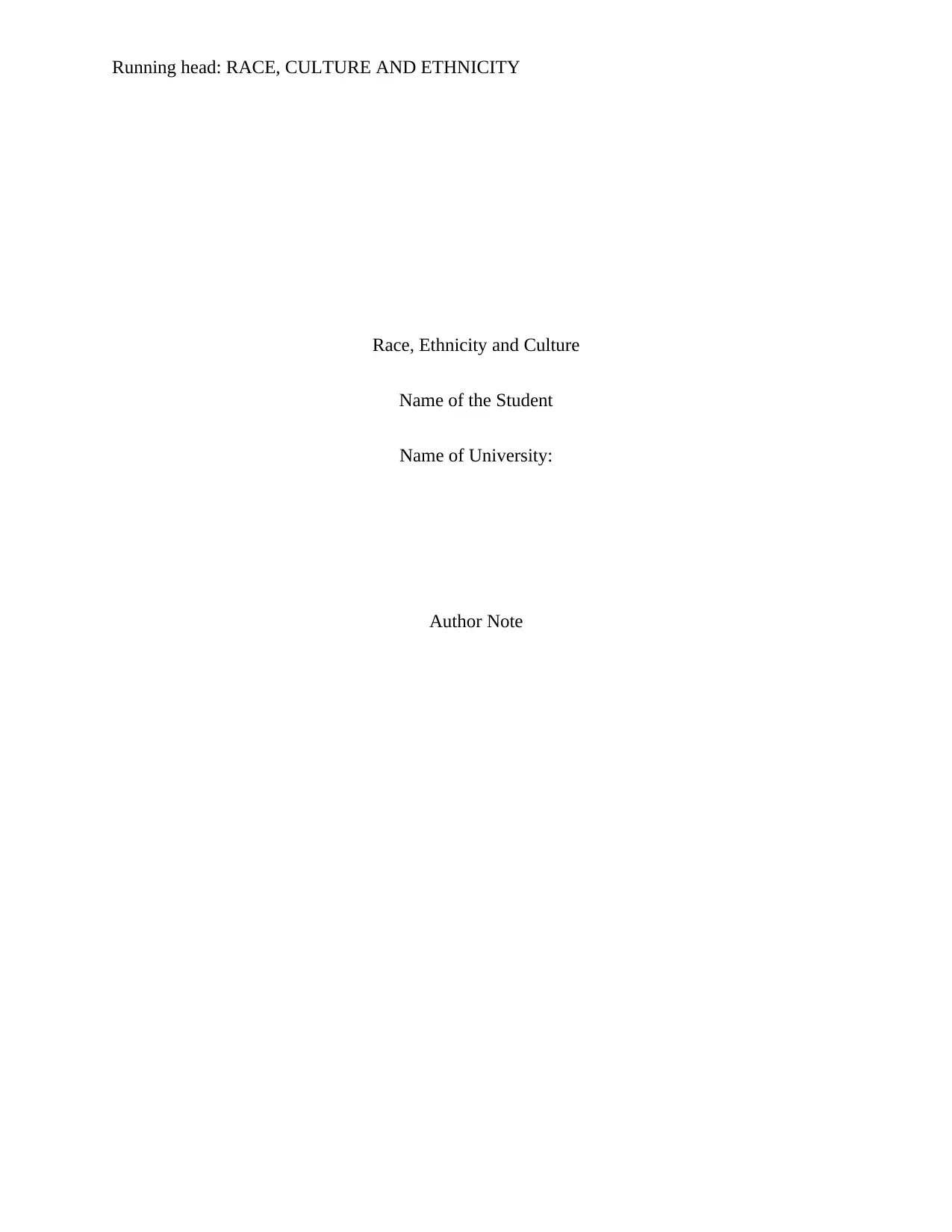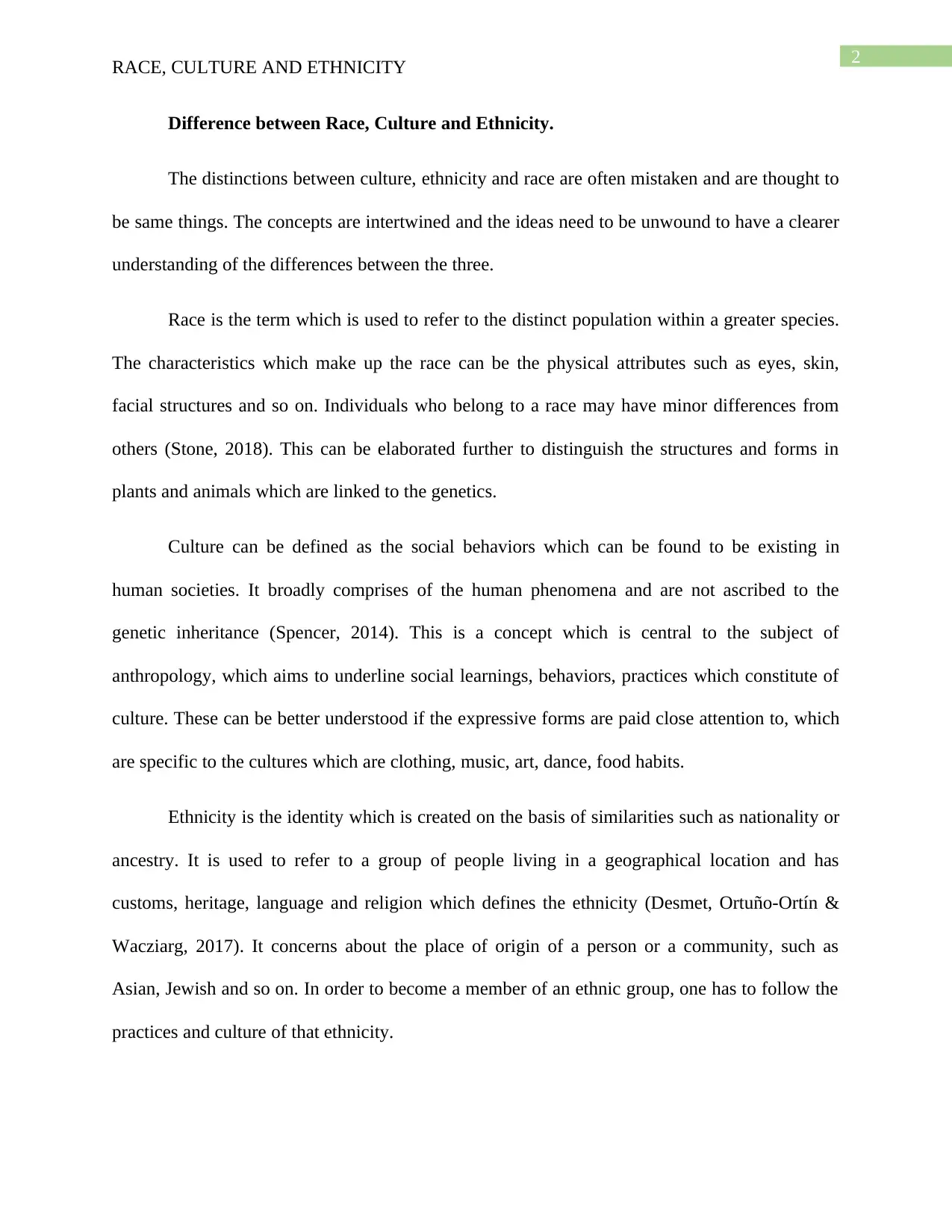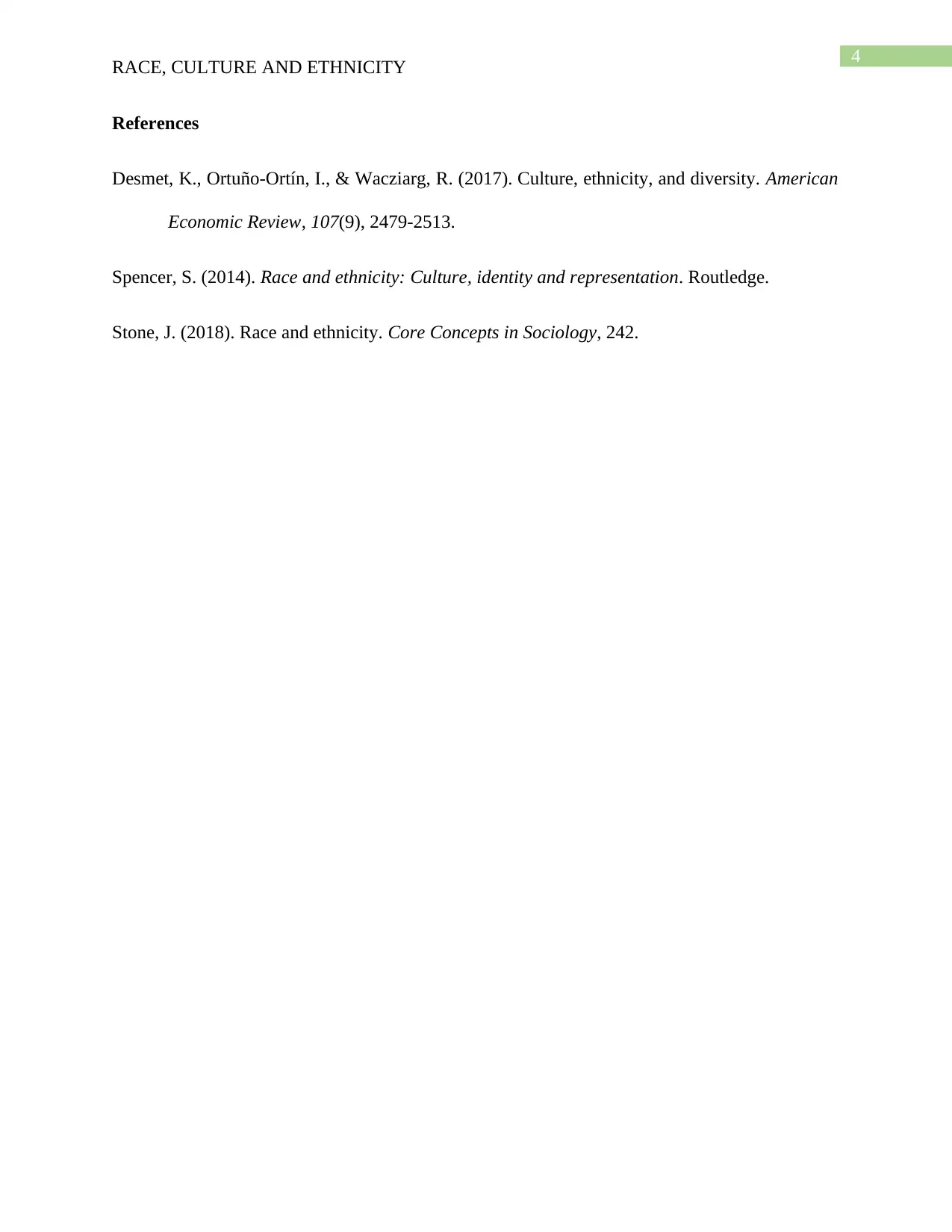Race, Culture, and Ethnicity: Examining Key Concepts
VerifiedAdded on 2022/08/27
|4
|479
|30
Report
AI Summary
This report delves into the distinctions between race, culture, and ethnicity, aiming to clarify the often-confused concepts. It defines race as a classification based on physical attributes, culture as encompassing learned social behaviors, and ethnicity as a shared identity based on nationality or ancestry. The report emphasizes that while the terms are socially defined, they are rooted in observable differences rather than strict rules. The report also references key literature to support the arguments and provide a comprehensive understanding of the subject matter. The report provides an overview of the core concepts and explores the overlapping nature of these terms, offering insights into their complexities and relationships.
1 out of 4








![[object Object]](/_next/static/media/star-bottom.7253800d.svg)